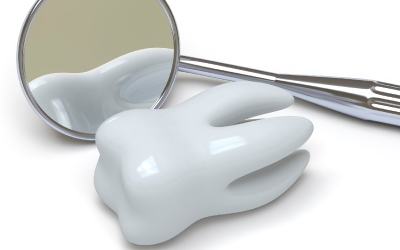How To Treat Gum Disease Naturally?
Homemade products are always cost effective and healthier. I remember when I was a child, I loved to sit beside my granny and watch her making soaps and toothpastes at home. The entire process was very complex and it took her hours to make one bar of soap and a small quantity of toothpaste for a single month.
No one has the patience and time for such things these days. However, we can also not ignore the benefits of natural products. Here are some easy and quick ways of treating your gum disease naturally.
Increase The Intake Of Vitamin D
The anti-inflammatory properties of vitamin D strengthen the teeth and soothe swollen gums. The sun is the richest source of vitamin D. Make a routine of standing below the sunlight for at least 10 minutes twice a week no matter if it’s cold or cloudy. According to the results of research conducted by the National Institutes of Health Office of Dietary Supplements, 20 minutes sun exposure on a weekly basis will give skin and gums enough vitamin D to sustain them.
Use The Right Blend Of Oils
The benefits of herbal oils are known to everyone. However, do you know which blends work? Some oils compliment others and heal more quickly if applied in the form of a blend. Tea tree oil, oregano, manuka, thyme, cinnamon, rosemary, clove, fennel, orange and eucalyptus are some of the most common and easily available herbal oils. Just blend two oils with the same anti-bacterial properties and it will make the treatment more effective. Some of the beneficial blends include wintergreen/peppermint, peppermint/orange/eucalyptus and manuka/tea tree/eucalyptus.
Make Your Own Toothpaste And Mouthwash
Here is a two-minute process for you to make your own toothpaste. Mix baking soda and salt in a 4:1 ratio. Add a few drops of your favorite essential oil blend. Brush with this mixture regularly and see the difference.
You can also make your own mouthwash using the same blend of oils. Make a solution of warm water and sea salt in the same proportion. Add five to six drops of essential oils and gargle with this solution at least once a day. The antibacterial properties of sea salt protect the gum from infections and works as an antibiotic for them. Sea salt contains minerals that are also found in the human body. No other synthetic substance is as beneficial as this natural source of mineral.
Reduce Stress
According to the results of a study conducted at the University of Dusseldorf, excessive stress can lead to plaque and bleeding of gums. As part of this research, a group of students were asked to undergo a professional dental cleaning four weeks before and after an exam. These students were then divided into two groups, one group took the exam and the other did not. After the last assessment, both of the groups had dental checkups. It was found that the former had considerably more cavities, bleeding gums and gingivitis than the latter.
If your gums start to bleed every time you are under stress, then you do not need to visit a dentist. Medicines will only minimize the pain for awhile. You may require a proper stress relieving treatment such as mindfulness meditation, relaxation response or diaphragmatic breathing.
Reduce The Consumption Of Sugary Foods
Like mosquitoes and ants, bacteria are also attracted by the smell and taste of sugar. As soon as your teeth come in contact with any sweet stuff, it triggers the bacterial attacks and causes the formation of plaque. It is not possible to stay away from chocolate and cakes all the time, especially for kids. As soon as you are finished eating sweets, brush your teeth immediately to clean the traces of sugar left on them.
After knowing how to treat gum diseases naturally and the benefits associated with it, won’t you want to try these out? Switch to natural treatments and save yourself from the dentists’ tools.
Author Bio:
Kevin Kerfoot writes about health, nutrition, oral hygiene and skin care for Trusted Health Products’ natural health blog and newsletter. Click here to learn more about gum disease.


Comments are closed.